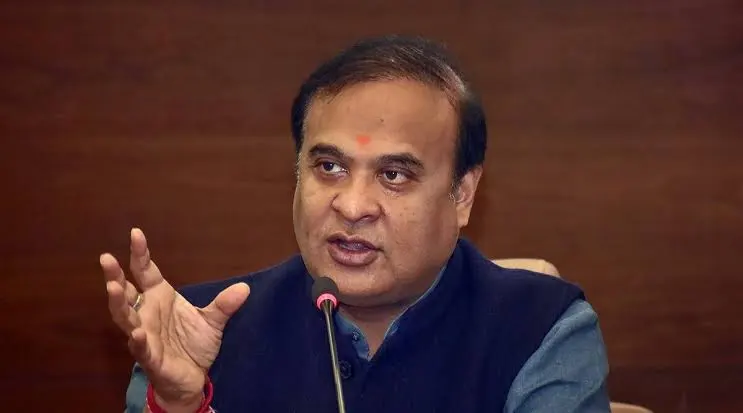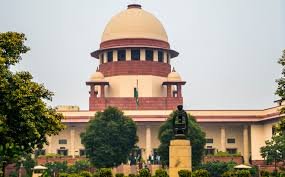Bills on “love jihad,” polygamy, and Satra conservation signal Sarma’s focus on Hindutva, risking alienation of minorities and secular voters.
BY Navin Upadhyay
As Assam gears up for the 2026 Assembly elections, Chief Minister Himanta Biswa Sarma’s recent actions and rhetoric signal a calculated strategy to polarize voters along communal lines. By leveraging divisive issues, Sarma aims to consolidate the Bharatiya Janata Party’s (BJP) Hindu voter base while countering a resurgent Congress challenge. His announcement of “landmark bills” targeting issues such as “love jihad,” polygamy, and Satra conservation, alongside ongoing demolition drives against alleged illegal settlers—often referred to as “Mias,” a pejorative term for Bengali-speaking Muslims—reflects a clear intent to play the Hindutva card. This approach, combined with development projects and populist schemes, seeks to balance communal polarization with governance optics, but risks deepening social divides in Assam.
Communal Rhetoric and Legislative Moves
Sarma’s promise to introduce bills addressing “love jihad” and polygamy directly taps into Hindutva narratives portraying Muslims as threats to Hindu cultural and demographic dominance. The term “love jihad,” a controversial concept lacking empirical support, is often used to stoke fears of interfaith relationships, particularly between Muslim men and Hindu women. Similarly, proposed legislation on polygamy appears to target Muslim personal laws, reinforcing stereotypes of cultural incompatibility. By framing these bills as efforts to “protect Assam’s social and cultural heritage,” Sarma appeals to Hindu nationalist sentiments—a tactic that has historically worked for the BJP in elections.
Nagaon, Assam: CM Himanta Biswa Sarma says, “The next Assembly session will be historic, as many significant bills will be introduced — including a bill to ban polygamy and Love Jihad, a bill to preserve our Satras, and a bill to confer land rights to our tea garden workers,… pic.twitter.com/tDaS85BnV3
— IANS (@ians_india) October 22, 2025
The focus on Satra conservation, tied to Assam’s Vaishnavite monastic institutions, underscores Sarma’s attempt to position himself as a defender of Assamese Hindu identity. The planned inauguration of the Batadrava Satra Conservation Project by Union Home Minister Amit Shah, a prominent BJP figure, is strategically timed to keep Hindutva at the forefront of public discourse ahead of the polls. These moves align with Sarma’s broader narrative of safeguarding Assam’s “indigenous” culture against perceived outsiders, particularly Bengali-speaking Muslims.
READ: Back Home After 50 years, Th. Muivah Warns Against Betrayal of Naga Mandate
Sarma’s demolition drives targeting alleged illegal encroachments, often in Muslim-dominated areas, have been justified as reclaiming public land. However, the use of terms like “Mias” in public discourse, coupled with evictions disproportionately affecting Muslim communities, has fueled accusations of communal targeting. These actions alienate minority voters while signaling to the BJP’s core Hindu base that the government is taking a hardline stance against “infiltrators,” a term Sarma frequently uses for undocumented immigrants, particularly from Bangladesh.
Balancing Polarization with Development
While Sarma’s communal rhetoric dominates headlines, he has also emphasized development initiatives to broaden appeal. During his Nagaon visit, he inaugurated projects worth over Rs 25 crore, including an Olympic-standard swimming pool, a health services office, a market complex, and improved road infrastructure. These projects aim to project an image of effective governance, appealing to voters beyond the BJP’s ideological base. The Mukhyamantri Mahila Udyamita Abhiyan (MMUA) scheme, which provided Rs 10,000 to over 26,000 women in Nagaon for entrepreneurial ventures, is a populist measure designed to win over women voters and counter opposition narratives of divisiveness.
By blending development with Hindutva rhetoric, Sarma attempts to appeal to both the BJP’s ideological supporters and undecided voters prioritizing governance. However, the heavy emphasis on communal issues risks overshadowing these development efforts, particularly among minority communities and secular voters.
Political Context and Congress’s Challenge
Sarma’s aggressive strategy comes as Congress, reinvigorated after its 2024 Lok Sabha performance, poses a growing challenge to BJP dominance in Assam. The Congress has capitalized on public discontent over unemployment, inflation, and perceived mismanagement, while accusing Sarma of divisive politics. By doubling down on Hindutva and anti-immigrant rhetoric, Sarma aims to consolidate the BJP’s Hindu voter base, historically fragmented across caste and ethnic lines in Assam. However, this approach could backfire if it alienates indigenous Assamese communities wary of the BJP’s national agenda, or if Congress successfully mobilizes minority and secular voters.
Risks and Implications
Sarma’s strategy carries significant risks. Communal polarization fostered by terms like “Mias” and policies targeting Muslims could exacerbate social tensions in Assam, a state with a history of ethnic and religious conflicts. The demolition drives, though popular among some, have drawn criticism for their humanitarian impact, with displaced families often left without adequate rehabilitation. Moreover, proposed bills on “love jihad” and polygamy may face legal scrutiny, as similar laws in other states have been challenged for violating constitutional protections on personal freedom and equality.
Sarma’s focus on Hindutva may also strain BJP alliances with regional parties like the Asom Gana Parishad (AGP) and the United People’s Party Liberal (UPPL), which rely on indigenous and tribal support. If Congress capitalizes on these fault lines and presents a united front, it could dent BJP’s prospects in 2026.
Himanta Biswa Sarma’s blend of communal rhetoric, legislative posturing, and development initiatives is a high-stakes gamble to retain power in Assam. By invoking “love jihad,” targeting “infiltrators,” and championing Hindu cultural symbols like Satras, Sarma is betting on Hindutva to rally the BJP’s base. However, this approach risks alienating minorities and moderate voters, while inviting legal and social backlash. As Congress prepares to challenge his regime, the 2026 elections will test whether Sarma’s polarizing tactics can outweigh the appeal of inclusive governance in Assam’s complex socio-political landscape.














